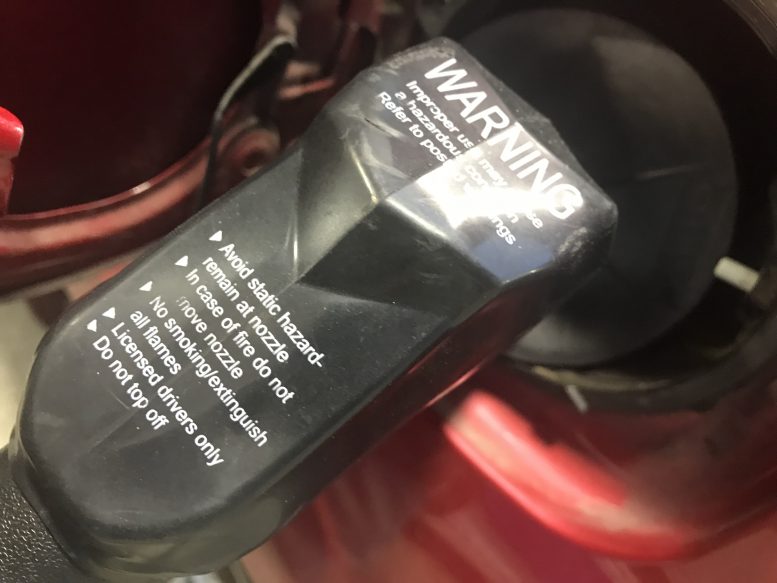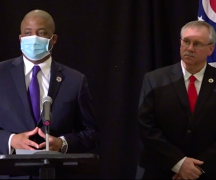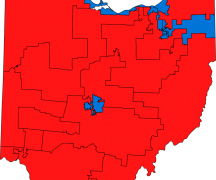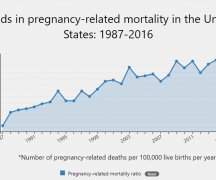Ohio Capital Journal
Are you feeling lucky?
Even if so, you might have a tougher time finding a lottery ticket these days with some retailers closed during the pandemic-caused shutdown.
This is leading to smaller lottery payouts — just one example of the way COVID-19 has affected the government’s coffers in recent months.
The Ohio Capital Journal looked into three separate revenue streams to see how they are faring during the crisis: the lottery, the gas tax and the turnpike.
Each is taking a hit.
Taking a chance on education
As most know, proceeds from the Ohio Lottery go toward the education system. The lottery commision reports it has transferred $26 billion in “cumulative profits” since 1974, including $1.15 billion last fiscal year.
The lottery’s communications office could not be reached to answer exactly how sales have been affected, but a manual review of the available games shows that payouts are down in recent weeks.
The lottery posts winning numbers and payouts for each game through the past 180 days. The Capital Journal looked at a month-long sampling of three different games, comparing payouts from Jan. 22-Feb. 21 and from March 22-April 21. (March 22 was the day Gov. Mike DeWine announced the stay-at-home order, which went into effect two days later.)
Pick 3, a twice-daily drawing, had a weekday payout average of $363,000 before the shutdown and $239,000 during it. Similarly, the weekend payout went down from $294,000 to $201,000.
Pick 5 had a similar weekday payout dip from $46,000 before the shutdown to $31,500 during it.
The Rolling Cash 5, drawn once per day, saw its weekday payout increase by $11,000 during the shutdown but the weekend average plummet by $30,000.
Gas stations are the most recognizable lottery retailers, and they remain open during the stay-at-home order. However, restaurant dining rooms, bars and other retailers are closed.
And while some Ohioans might have more disposable income due to not going out and spending, many others have been negatively impacted by the shutdown. (Nearly 1 million Ohioans to date have filed for unemployment.)
Ultimately, people staying home means not being out and buying lottery tickets. This means smaller payouts, and it may result in a smaller transfer to Ohio’s educational system for 2020.
Hitting the road
It is logical that with people staying at home, fewer people are out driving.
Matt Bruning, the press secretary for the Ohio Department of Transportation, outlined just how severe a drop-off in driving there has been since the shutdown order.
In an email to the Capital Journal on April 16, Bruning said traffic volumes across the state of Ohio were down about 47.5% the week prior.
This will definitely have an impact on the state’s gas tax, which stands at 38.5 cents per gallon of gasoline purchased and 47 cents per gallon of diesel/other types of fuel.
Just what that impact will be is yet to be determined, according to Bruning.
“It’s too early to know for sure,” he wrote. “From the time you pump gas into your vehicle to the time the tax revenue from that gas reaches ODOT, it’s about a two to three month lag.”
Bruning said we’ll have a “clearer picture” this summer.
The gas tax revenue goes toward road and bridge maintenance throughout the state. It is allocated to local governments, with the county share being split evenly among the 88 counties.
The virus ‘toll’
Traffic is down on the Turnpike, a 241-mile toll highway that runs laterally along the northern edge of the state.
The Ohio Turnpike and Infrastructure Commission’s toll revenue from March 16-April 15 of this year was $18.3 million, Public Information Officer Brian Newbacher said.
That figure is down 27% from the exact same time period in 2019 in which the toll revenue was $25.2 million.
***
Dem lawmaker introduces tax amnesty bill for businesses, taxpayers
The impact of coronavirus-related economic losses will not fully be realized until much later, according to state officials, but one lawmaker said he’s trying to hold off some of the losses in the form of delinquent taxes.
State Rep. Thomas West, D-Canton, is leading an effort to get a temporary tax amnesty program through the end of the year.
“When (the state starts) to ramp up, we know our sales tax collections and a lot of the revenues that the state would normally get will be down,” West told the Capital Journal. READ MORE





